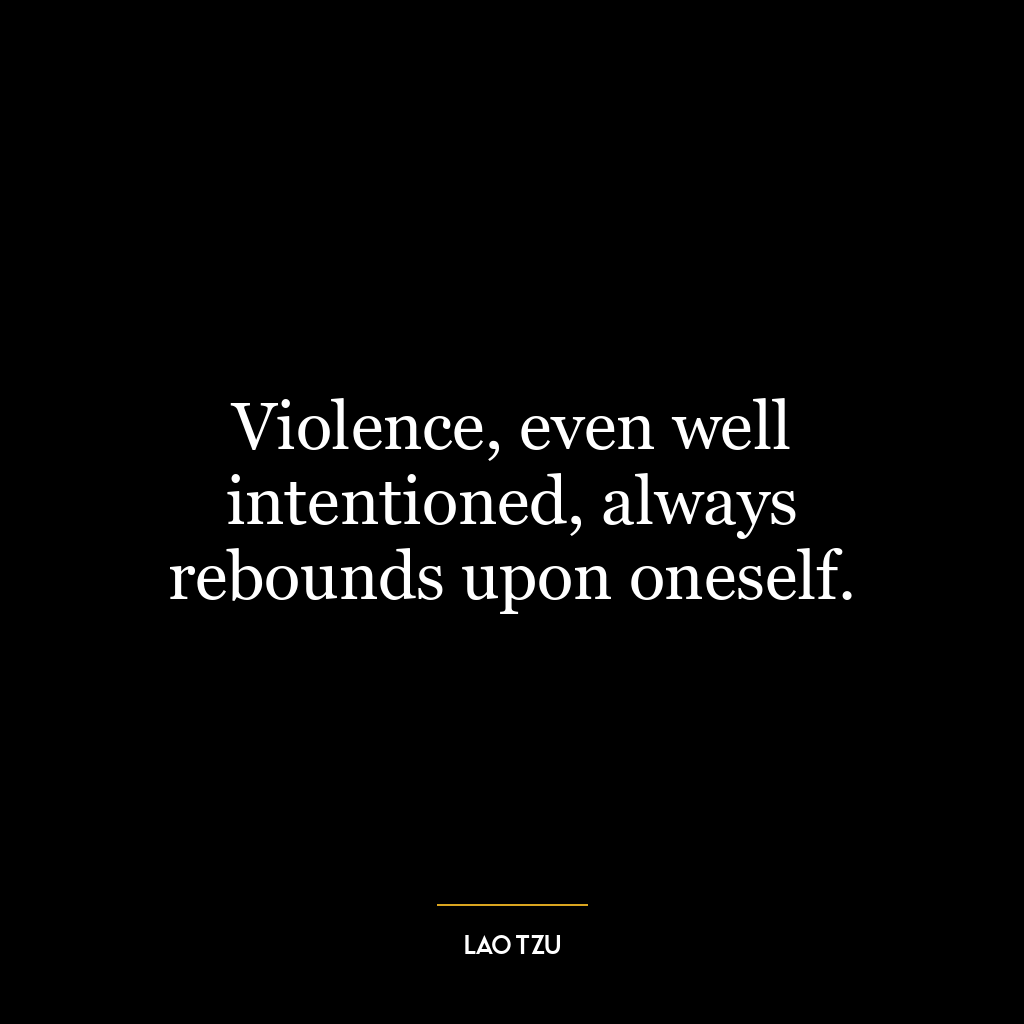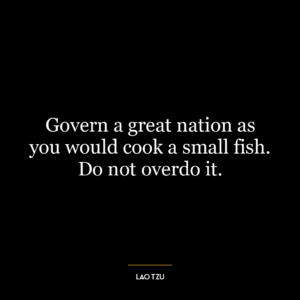This quote embodies the philosophy that violence, regardless of the reasons behind it, inevitably harms the perpetrator. The idea is that when one inflicts harm onto others, they also indirectly harm themselves. This harm may not be physical, but emotional, psychological, or spiritual. It suggests that violence is never a one-way street; it always has a boomerang effect.
The concept of violence rebounding upon oneself can be interpreted in several ways. Firstly, it could mean that the violent actions one commits might lead to direct repercussions, such as retaliation or punishment. Secondly, it might refer to the psychological or emotional toll that committing violent acts takes on an individual. This could manifest as guilt, remorse, or trauma that negatively affects one’s mental health. Lastly, it could be seen in a more metaphysical or spiritual sense, where the negative energy one puts out into the world through violence will eventually come back to them.
Applying this idea to today’s world, it can be seen in various contexts. In the realm of international relations, a country that resorts to violence or war might face retaliation, international condemnation, or long-term consequences like economic isolation. In personal relationships, individuals who resort to violence may face legal consequences, damage their relationships, or suffer from guilt and remorse.
In terms of personal development, this quote encourages individuals to practice non-violence and empathy. It suggests that resorting to violence, even if one believes it to be justified, will ultimately lead to suffering. Instead, finding peaceful, compassionate solutions to conflicts can lead to more positive outcomes for all parties involved. It encourages personal growth, emotional intelligence, and the development of conflict resolution skills. It also emphasizes the importance of understanding the potential consequences of one’s actions, promoting a more thoughtful and mindful approach to life.















